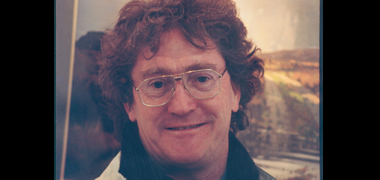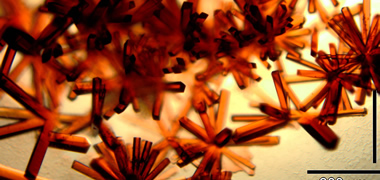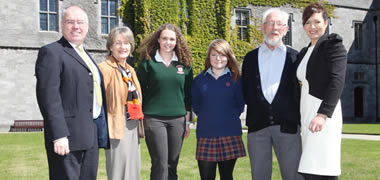-
Courses

Courses
Choosing a course is one of the most important decisions you'll ever make! View our courses and see what our students and lecturers have to say about the courses you are interested in at the links below.
-
University Life

University Life
Each year more than 4,000 choose University of Galway as their University of choice. Find out what life at University of Galway is all about here.
-
About University of Galway

About University of Galway
Since 1845, University of Galway has been sharing the highest quality teaching and research with Ireland and the world. Find out what makes our University so special – from our distinguished history to the latest news and campus developments.
-
Colleges & Schools

Colleges & Schools
University of Galway has earned international recognition as a research-led university with a commitment to top quality teaching across a range of key areas of expertise.
-
Research & Innovation

Research & Innovation
University of Galway’s vibrant research community take on some of the most pressing challenges of our times.
-
Business & Industry

Guiding Breakthrough Research at University of Galway
We explore and facilitate commercial opportunities for the research community at University of Galway, as well as facilitating industry partnership.
-
Alumni & Friends

Alumni & Friends
There are 128,000 University of Galway alumni worldwide. Stay connected to your alumni community! Join our social networks and update your details online.
-
Community Engagement

Community Engagement
At University of Galway, we believe that the best learning takes place when you apply what you learn in a real world context. That's why many of our courses include work placements or community projects.
2012
All 2012
US Government Joins the Dots with Irish ‘Linked Data’ Technologies

Thursday, 26 April 2012
Agencies in the US Government have adopted a set of web tools and standards developed in Ireland by researchers at NUI Galway’s Digital Enterprise Research Institute (DERI). DERI’s technologies are being utilised by Data.gov, a portal developed to bring an unprecedented level of transparency to the US Government. DERI’s research, which is funded by Science Foundation Ireland, focuses on enabling networked knowledge, using the latest Semantic Web and Linked Data technologies. Its technologies allow related data that was not previously linked to be connected together, so that a person or computer can see the bigger picture through interlinked datasets. Data.gov allows the linking of open government data from agency publishers to contributions from other public and private organisations. DERI’s Dr John Breslin, who also lectures in Electronic Engineering at NUI Galway, explains: “I recently saw a universal toy adaptor that allowed you to connect plastic building blocks to wooden construction sets. Linked Data is a bit like that – it’s based on a universal data format that allows you to bring datasets from different realms together, making them more useful as a whole. Your planning applications could be linked to your broadband penetration rates or your traffic congestion data to help identify issues and trends.” Among the DERI outputs being used by Data.gov and the related Healthdata.gov site are Neologism and the GRefine RDF Extension. Neologism is a new tool which allows for the easy creation of ‘vocabularies’ needed to link data and is built on the powerful open source content management platform Drupal. One such vocabulary that is listed in vocab.data.gov is the Vocabulary of Interlinked Datasets (VOID), which was co-created by DERI researchers. The second technology in use, the RDF Extension for Google Refine, is a graphical user interface for exporting data from Google Refine (a tool for working with messy data) as interlinked Semantic Web data. George Thomas, Enterprise Architect with the US Health and Human Services Administration, has said: “More behind the scenes work that routinely benefits from substantial DERI engagement includes an ongoing contribution to the creation and promulgation of open standards related to open government data catalogs and communities. But DERI doesn’t stop there, they put these new standards into practice through enhancements to Drupal 7 core, helping make it an even more powerful publishing and visualization tool for the emerging Web of Data.” He added: “We hope to leverage all of these features and capabilities in our current and ongoing Healthdata.gov modernization efforts. They also create lots of other useful tools and pen helpful blog posts that promote the proper use and integration of standards. Furthermore, DERI folks are active in many other efforts to promote structured data using open standards and help to clarify best practices that will ultimately lead to better integration of international government statistics.” Joint work between DERI and Mr. Thomas’ team on Patient Controlled Privacy (using Linked Health Data) will be presented at the Semantic Technologies Conference in San Francisco in June, that makes use of the Privacy Preference Ontology and related privacy management web applications from DERI’s Social Software Unit. Data.gov is part of a global initiative referred to as the Open Data movement, with the goal to motivate governments to make public information freely available and easily accessible online. Others examples include data.gov.uk and data.london.gov.uk from the UK, and data.fingal.ie and dublinked.ie from Ireland. Researchers at DERI in NUI Galway are in the vanguard of this new technology space. The largest research organisation of its kind in the world, DERI with its 140 researchers, it is collaborating with industry and governments to revolutionise the utilisation of data. Today, more than 200 regions and countries are publishing their government data online. Three years ago, DERI announced the adoption of its SIOC data format by a website in the Obama administration. The SIOC format is one of the Open Data formats being produced by a number of US Government websites that use the latest Drupal platform, including energy.gov (the US Energy Department), policy.house.gov (the Republican Policy committee), lsc.gov (the civil legal aid program), and oag.ca.gov (the California Attorney General). The DCAT vocabulary from DERI is also used by various government sites for describing government datasets and data catalogs. DERI also collaborates with the European Commission on common semantic vocabularies, such as the Asset Description Metadata Schema (ADMS). Professor Stefan Decker, Director of DERI at NUI Galway, says that while we are seeing Open Data being used to improve public services and promote more transparent and effective government - that is only part of the story. “Open Data has been described recently by the UK’s Cabinet Office Minister Francis Maude as the raw material of a ‘new industrial revolution’. Making more data freely available is resulting in people using it to build new businesses and grow existing ones, creating jobs. In Ireland, the Open Data movement is being pioneered by the likes of Fingal County Council, the Dublinked consortium and the National Cross-Industry Working Group on Open Data. DERI participates at a national and international level through the provision of best practices, standards and technologies. Open Data is key to supporting a truly transparent and participatory democratic system.” In Ireland, DERI collaborates closely with local and the Local Government Computer Services Board, as well as the National Cross-Industry Working Group on Open Data to promote Open Data. Professor Decker concluded: “These are exciting times and a true spirit of innovation and entrepreneurship is engulfing the IT world as networked knowledge begins to come into its own. Undoubtedly, ten years from now when we look back, we will wonder how we managed with the volumes of unconnected data we have now.” DERI was founded in 2003 at NUI Galway with support from the Irish Government’s Science Foundation Ireland, as part of a strategic investment in Semantic Web research and business development. -ends-
>> Read full story about US Government Joins the Dots with Irish ‘Linked Data’ Technologies
NUI Galway Summer Schools for Second Level Students

Monday, 30 April 2012
NUI Galway is offering secondary school students the choice of four separate Summer Schools in May and June, across the disciplines of Nursing, Computing, Engineering and Science. Aimed at students in transition, fifth and sixth year, the summer schools are specially designed to give interested students a real taste of University life through a wide range of hands-on practical and interactive activities. On Tuesday, 29 May, the first NUI Galway Nursing Summer School will take place. This pilot initiative is open to Transition Year students, who will be given the opportunity to learn more about studying Nursing and the careers available to them upon graduation. Activities at the Summer School will focus on lifesaving skills include CPR, recognising vital signs and hand hygiene. Spaces for this Summer School are limited to 32 students and are on a first-come, first-served basis. NUI Galway’s IT and Computing Summer Camp introduces computing in a novel, fun and interactive way. Students, from first to sixth year, will have the opportunity to explore and experiment with a range of digitally-inspired topics including Digital Media, Games, Robotics, Programming and Animation. Participants will have the opportunity to use leading-edge technologies, from constructing and controlling robots that can interact with their environment, to directing a virtual 'mini-movie' that can be uploaded to a website and shared with friends. Due to popular demand, NUI Galway will hold two of the week-long sessions to facilitate the numbers interested, 11 to 15 June, or 18 to 22 June. Places will be allocated on a first-come, first-served basis. From Thursday 21 to Friday 22 June, the Science Experience Summer Event will offer students two whole days to delve into a wide range of scientific disciplines in world class research facilities and institutes. The workshop will feature all disciplines of the College of Science including Biology, Chemistry, Maths and Physics. Prospective students will get a taste of life as a scientist with the opportunity to gain a closer view of the research facilities with tours, to take part in lab experiments and demonstrations and to speak to the lecturers and the scientists at NUI Galway about the latest discoveries and inventions. Registration deadline for this particular Summer School is 20 May. Students interested in the Engineering Summer School have a choice of two different days to participate, Thursday, 28 June, or Friday, 29 June. Housed in the University’s new Engineering Building, the Summer School will offer a taste of experiences as wide-ranging as controlling a wastewater treatment plant remotely, robo-soccer games, building and testing pacemaker circuits, designing an eco-house, and for future Formula 1 engineers, designing a go-kart. There will also be a 'Frankenstein Design’ feature on how bioengineers make new body parts. The closing date for applications for the Engineering Summer School is Thursday, 31 May. Caroline Loughnane, Director for Marketing and Communications at NUI Galway, says: “This is our third year of summer schools and they are proving hugely popular. Not only are summer schools a great opportunity to experience University life, but they also help participants to really find out what subjects and courses they will be best suited to in college. We recommend that secondary school students choose subjects they enjoy for their CAO options, and these summer schools are a great way of helping students to discover where their interests lie.” Spaces for all Summer Schools are limited so early booking is advised. To find out more about the NUI Galway Summer Schools or for applications visit www.nuigalway.ie/summer-schools. -ENDS-
>> Read full story about NUI Galway Summer Schools for Second Level Students
NUI Galway Announce Pat Sheeran Scholarship for MA in Film Studies

Monday, 30 April 2012
The Huston School of Film & Digital Media at NUI Galway has launched the Pat Sheeran MA in Film Studies Scholarship. All students applying to the MA in Film Studies programme in the coming year will be considered for this scholarship, valued at €2000, based on their application and supporting documentation. The scholarship has been established to mark the substantial contribution of the late Professor Sheeran to the development of Film Studies in NUI Galway and the establishment of the Huston School of Film & Digital Media. A vital and inspirational member of the English department, Professor Sheeran’s publications included a seminal study of the John Ford classic, The Informer (1935), published by Cork University Press shortly after his untimely passing in 2001. He was also co-writer of the Irish feature film The Fifth Province (1997) and initiated the Galway Film Project that laid the groundwork for the establishment of the Huston School in 2003. According to MA in Film Studies Programme Director, Dr Seán Crosson: “This scholarship provides a great opportunity for students interested in furthering their knowledge and employment prospects in a wide range of film-related careers or in enhancing their potential for undertaking further research at PhD level through the completion of our MA in Film Studies. It is also an opportunity for us to recognise the huge contribution Professor Sheeran made to students and colleagues in NUI Galway before his untimely death.” The MA in Film Studies (Film, Culture and Society) emphasises the relationship between film and society while viewing the medium as a unique point of contact between culture, politics and social life. The programme is taught by leading film studies academics who have made substantial contributions to film studies inIrelandand internationally. Core modules in film history and theory examine fundamental issues in film while options allow students to focus on specific areas, including Irish film, Film in the Digital Age, and Gender & Sexuality in Cinema. Previous graduates of the programme have acquired positions in an array of film-connected areas, including lecturing, teaching, programming and exhibition, curatorial work, and arts journalism. Former Film Studies graduate and current Galway Film Fleadh programmer, Gar O’Brien, says: “Any expectations I might have had would have proven insufficient for the breadth and scope of the MA in Film Studies programme at Huston. I found myself in a class of like-minded individuals where we were guided, supported and encouraged by the staff there, not only to learn about everything from genre and the auteur theory to the relationship between situationist politics and art cinema, but to find our own voice and outlet for our passion for cinema. This had a profound effect on me and, without any hyperbole, it is fair to say that this course represented a major turning point in my life.” A unique aspect of the Huston Schoo is the pioneering suite of postgraduate programmes the school offers, including in Screenwriting, Production and Direction, and Digital Media, as well as Film Studies, and the connections the school encourages between students in each of these areas. This includes the sharing of modules and also the impressive array of world renowned visitors and guest lecturers, open to all programmes, during the year. Previous visitors and/or guest lecturers have included Roddy Doyle, Laura Mulvey, Fionnula Flanagan, Lenny Abrahamson, Diane Negra, James Cromwell, John Boorman, Evan Goldberg, Gabriel Byrne, John Carney, Patrick McGilligan, Noel Burch, Mike Figgis, Brian Winston, Christopher Frayling and Victor Perkins. Building on the success of TG4 and Irish-language film production over the past ten years, the programme also includes an Irish-language option module (the first of its type on an MA in Film Studies programme in Ireland), ‘Scéalta Scáileáin na Gaeilge’, which focuses on the history of screen production in the Irish language and expands students’ employment prospects in the growing area of Irish- and English-language film and television. All applications to the MA in Film Studies should be made online at www.pac.ie/nuigalway Further Information on the MA in Film Studies is available at http://www.filmschool.ie/courses.php?id=3 ENDS
>> Read full story about NUI Galway Announce Pat Sheeran Scholarship for MA in Film Studies
‘Scouting’ Molecules Give New Direction for Drug Development

Monday, 30 April 2012
New insights into the behaviour of molecules could have major implications for the design of drugs that block protein interactions. A team of researchers led by Dr Peter Crowley at the National University of Ireland Galway has revealed in intricate detail how a drug-like molecule can explore the surface of a protein. The pioneering work was published by Nature Chemistry online (Sunday, 29 April) and will appear in the June issue of the journal. It was found that molecules scout around the protein surface, moving from one location to another constantly examining their surroundings. For the past thirty years, drug design has been dominated by the search for small molecules that fit perfectly into a protein’s active site and modify its activity. Recently, the focus of attention has shifted to molecules that recognise and bind to the protein surface. Such molecules can camouflage the protein and prevent it binding to other proteins. Knowledge of these interactions is essential to the development of therapies that target undesirable protein interactions such as occur in Alzheimer’s disease. “Inside every cell thousands of different proteins work together, like the parts in a machine, to sustain life. How proteins stick to one another and to other molecules is a crucial piece in the complicated puzzle of biochemistry and often the key to effective drugs”, explains Dr Crowley. The researchers chose a negatively charged molecule called calixarene and a protein with lots of lysine amino acids, which are positive. The opposite charges cause a force of attraction between them. Using sophisticated analytical methods, Nuclear Magnetic Resonance (NMR) spectroscopy and X-ray crystallography, Dr Crowley and colleagues were able to visualise how the calixarene sticks to the protein surface. “Another feature of the calixarene is its bowl-shape. Lysine can fit snugly inside the calixarene, which ensures that an interaction takes place”, adds Dr Crowley. “It turns out that the calixarene binds to several different lysines and explores the protein surface by hopping from one lysine to another. The result is exciting because it adds a new dimension to our understanding and provides drug designers with an alternative strategy.” Dr Crowley emphasised the importance of funding basic research and acknowledged the support of the National University of Ireland Galway and Science Foundation Ireland. The project was a collaborative effort that involved the European Synchrotron Radiation Facility and Dr Amir Khan at Trinity College Dublin. To view the video on the research click here -ends-
>> Read full story about ‘Scouting’ Molecules Give New Direction for Drug Development
NUI Galway's Intergenerational Learning Programme to Represent Ireland in Major EU Competition

Monday, 30 April 2012
The ‘Living Scenes’ intergenerational learning programme at NUI Galway has been selected to represent Ireland in a European Commission Intergenerational Competition. The generations@school Project is organised by the European Year for Active Ageing and Solidarity between Generations and is about engaging pupils and seniors in intergenerational dialogue. Since 2009, Europe has celebrated a European Day of Solidarity between Generations on 29 April. In 2012, the focus is on bringing together pupils and older people to engage in a conversation about what it means to get older and how older and younger people can collaborate for a better life. To coincide with this event, the EU Commission will host a competition to award the best project in each EU Member States and one overall European winner. Through weekly art, music, drama and creative writing workshops, NUI Galway’s Living Scenes allows teenagers and older adults to learn together, share experiences and build bonds of mutual respect and understanding. A strong emphasis is placed on the holistic development of the participants, promoting equality, personal development and confidence building in both the younger and older adults. NUI Galway's Dr Mary Surlis is the Living Scenes Programme Director, and has been involved since its inception: “We are delighted to be the only Irish school-based programme of intergenerational learning to participate in this European competition. Living Scenes is about adopting an open, inclusive and consultative approach to learning. It is currently in seven secondary schools throughout Ireland, and is embedded in the transition year in each school. To date 1,478 participants have taken part in our programme, the highest of any intergenerational learning initiative of its kind across Ireland, or even Europe.” Dr Surlis added: "At a time when there is a serious erosion of social fabric evident in Irish society, Living Scenes aims to respond to the growing need for communication and trust in both the school and in the local community. What we are trying to do is to regenerate relationships both in schools and communities and, perhaps more importantly, between our older and our younger generations.” The intergenerational focus of the Living Scenes programme seeks to create a climate in which the participants will develop interpersonal skills, self-realisation, character building skills and cross-generational awareness and respect. Psychologist, acclaimed writer, and most recent winner of Listowel Originals Short Story Award, Hedy Gibbons has been facilitating creative writing modules in the Living Scenes Programme for some years, and observes that: “The overall beneficial outcomes of the Living Scenes Programme are not confined to the strictly educational. Focusing on tasks that encourage creativity also seems to increase appreciation and understanding between age groups and cultures of their life experiences. Feedback from participants suggests enhanced psychological well-being through shared learning in a social educational setting. This surely will have positive spin- off in reducing isolation and increasing understanding in the context of generational and social exclusion.” ENDS
>> Read full story about NUI Galway's Intergenerational Learning Programme to Represent Ireland in Major EU Competition















